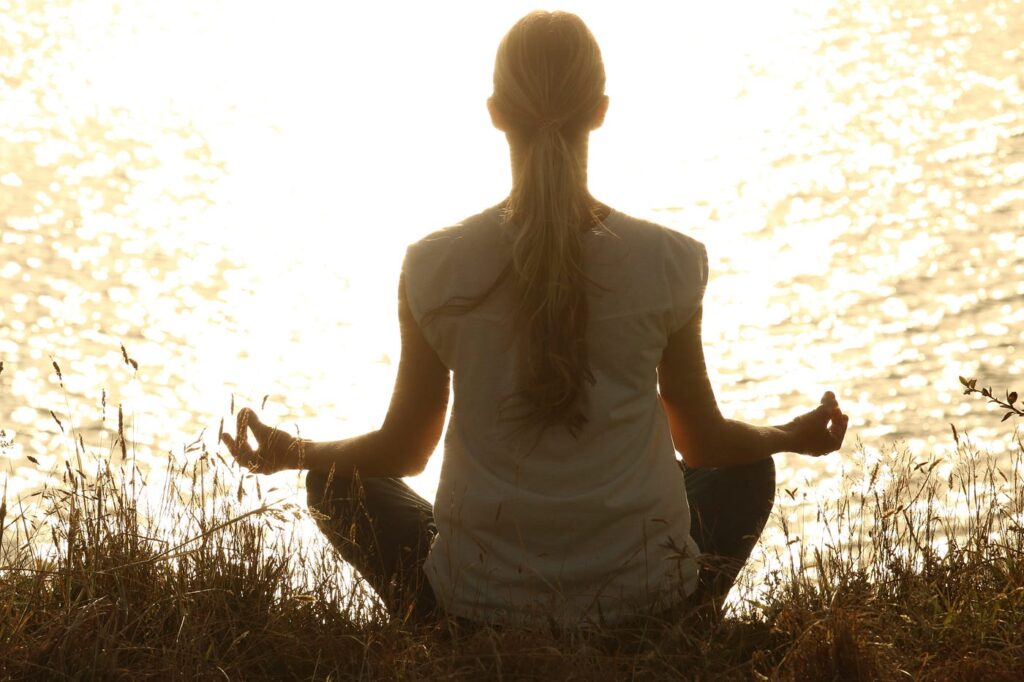Overview
What is mindfulness?
Mindfulness is the practice of paying attention to the present moment, without judgment. It involves bringing awareness to our thoughts, feelings, and sensations, and accepting them as they are. Mindfulness allows us to cultivate a sense of presence and connect with our inner selves. By practicing mindfulness, we can develop a greater sense of clarity and emotional well-being. It is a powerful tool for reducing stress, improving focus, and enhancing overall mental and physical health.
What is meditation?
Meditation is a practice that involves focusing your mind and eliminating the stream of thoughts that constantly flow through it. It is a technique that has been used for centuries to promote relaxation, reduce stress, and enhance overall well-being. Through meditation, you can cultivate a sense of inner peace and tranquility, allowing you to better navigate the challenges of everyday life. By incorporating meditation into your routine, you can develop a greater sense of self-awareness and gain valuable insights into your thoughts and emotions.
Benefits of mindfulness and meditation
Mindfulness and meditation have numerous benefits for both the mind and body. They can help reduce stress and anxiety, improve focus and concentration, enhance self-awareness and emotional intelligence, and promote overall well-being. Research has shown that regular practice of mindfulness and meditation can also have physical benefits such as lowering blood pressure, improving sleep quality, and boosting the immune system. Additionally, mindfulness and meditation have been found to increase resilience and improve coping mechanisms, making it easier to navigate through life’s challenges. By incorporating these practices into your daily routine, you can experience a greater sense of calm, clarity, and inner peace.
Getting Started with Mindfulness
Understanding the basics of mindfulness
Understanding the basics of mindfulness is essential for anyone interested in incorporating this practice into their daily routine. Mindfulness is the act of being fully present and aware of the present moment, without judgment or attachment. It involves paying attention to your thoughts, feelings, and sensations in a non-reactive way. By cultivating mindfulness, you can develop a greater sense of self-awareness and improve your overall well-being. One way to deepen your understanding of mindfulness is to learn from experts in the field, such as UC San Diego professor Dr. Jon Kabat-Zinn, who pioneered the integration of mindfulness into mainstream healthcare.
Incorporating mindfulness into your daily routine
Incorporating mindfulness into your daily routine is a powerful way to bring more peace and clarity into your life. One effective way to do this is through meditation training. Meditation training involves learning and practicing different techniques that help calm the mind and cultivate a deeper sense of awareness. By setting aside a few minutes each day to meditate, you can reduce stress, improve focus, and enhance overall well-being. Whether it’s a guided meditation or a self-guided practice, finding the right technique that resonates with you is key. Consider exploring different types of meditation practices and experiment with what works best for you. With regular meditation practice, you can experience the transformative power of mindfulness and meditation in your daily life.
Practical tips for practicing mindfulness
Practicing mindfulness can be a powerful tool for managing stress and improving overall well-being. Here are some practical tips to incorporate mindfulness into your daily life:
-
Start with small moments: Begin by setting aside a few minutes each day to focus on the present moment. This can be as simple as taking a few deep breaths or observing your surroundings.
-
Create a mindfulness routine: Find a time and place where you can practice mindfulness without distractions. It could be in the morning before starting your day or in the evening before bed.
-
Engage your senses: Pay attention to the sensations of your body, the sounds around you, and the tastes and smells of your food. Engaging your senses can help bring you into the present moment.
-
Practice non-judgment: When thoughts or emotions arise, try to observe them without judgment. Recognize that thoughts are just thoughts and emotions are just emotions, without attaching any labels or value to them.
By incorporating these practical tips into your daily routine, you can begin to experience the benefits of mindfulness and join the mindfulness revolution.
Exploring Different Meditation Techniques
Types of meditation practices
There are various types of meditation practices that you can explore to find the one that resonates with you. Mindfulness meditation is a popular technique that involves focusing your attention on the present moment and accepting it without judgment. Transcendental meditation is another well-known practice that uses a mantra to achieve a state of deep relaxation and inner peace. Loving-kindness meditation involves cultivating feelings of compassion and goodwill towards oneself and others. Yoga meditation combines physical postures, breathing exercises, and meditation to promote physical and mental well-being. Guided meditation is a helpful option for beginners as it provides step-by-step instructions and guidance. Regardless of the type of meditation you choose, it’s important to find a quiet and comfortable space where you can practice uninterrupted.
Finding the right meditation technique for you
When it comes to meditation, there are various techniques to choose from. Each technique offers its own unique benefits and appeals to different individuals. Finding the right meditation technique for you is essential to ensure a fulfilling and effective practice. It is important to consider your personal preferences, goals, and needs when exploring different meditation techniques. Some popular meditation techniques include mindfulness meditation, transcendental meditation, and loving-kindness meditation. By experimenting with different techniques, you can discover which one resonates with you the most and brings you the desired results.
Guided meditation vs. self-guided meditation
When it comes to meditation, there are two main approaches: guided meditation and self-guided meditation. Guided meditation involves following along with a recorded voice or video that provides instructions and guidance throughout the practice. This can be helpful for beginners or those who prefer a more structured experience. On the other hand, self-guided meditation allows for more flexibility and freedom. It involves meditating on your own, without any external guidance. This approach allows you to explore your own thoughts and feelings, and develop a deeper connection with yourself. Both guided and self-guided meditation have their own benefits, so it’s important to find the approach that works best for you. Here’s a comparison of the two approaches:
| Guided Meditation | Self-Guided Meditation |
|---|---|
| Provides instructions and guidance | Allows for flexibility and freedom |
| Structured experience | Personalized experience |
| Helpful for beginners | Requires more self-discipline |
Ultimately, the choice between guided meditation and self-guided meditation depends on your personal preferences and goals. Some people may find that they prefer the structure and guidance of guided meditation, while others may enjoy the freedom and exploration of self-guided meditation. Whichever approach you choose, the important thing is to make time for meditation and incorporate it into your daily routine.
Conclusion
The transformative power of mindfulness and meditation
Mindfulness and meditation have the power to transform our lives in profound ways. By practicing mindfulness, we can cultivate a deeper sense of self-awareness and a greater ability to live in the present moment. Meditation, on the other hand, allows us to quiet the mind and find inner peace. Together, these practices can help us reduce stress, improve our mental and physical well-being, and enhance our overall quality of life. One area where mindfulness and meditation can be particularly effective is in improving sleep. By incorporating effective meditation techniques for better sleep into our bedtime routine, we can calm our minds and relax our bodies, setting the stage for a restful and rejuvenating night’s sleep.
Incorporating mindfulness and meditation into your life
Incorporating mindfulness and meditation into your life can have a profound impact on your overall well-being. By making these practices a regular part of your daily routine, you can experience greater clarity, reduced stress, and improved focus. Henry Sugar-Inspired Meditation Methods for Beginners are a great way to start your meditation journey. These techniques, inspired by the famous Roald Dahl character, offer simple and accessible methods for beginners to cultivate mindfulness and develop a deeper sense of self-awareness. Whether it’s focusing on your breath, visualizing a peaceful scene, or practicing loving-kindness meditation, these techniques can help you find stillness and peace amidst the chaos of everyday life. Incorporating these methods into your meditation practice can enhance your overall experience and bring you closer to a more mindful and peaceful existence.
Taking the first step towards a more mindful and peaceful existence
Now that you understand the power of mindfulness and meditation, it’s time to take the first step towards a more mindful and peaceful existence. Incorporating these practices into your daily routine can have a profound impact on your overall well-being. Start by setting aside a few minutes each day to practice mindfulness and meditation. Find a quiet and comfortable space where you can relax and focus your attention on the present moment. You can use guided meditation apps or follow self-guided meditation techniques to help you get started. Remember, consistency is key. Make a commitment to yourself to practice mindfulness and meditation regularly, and you will begin to experience the benefits in your daily life.





